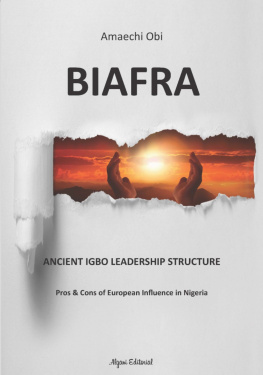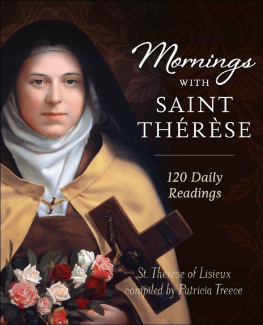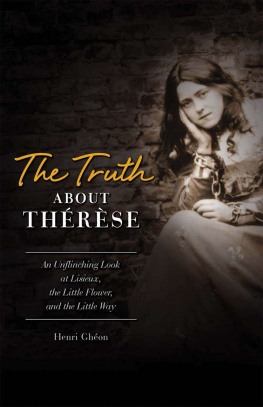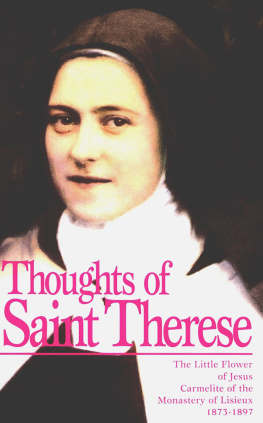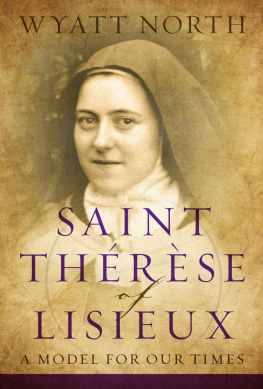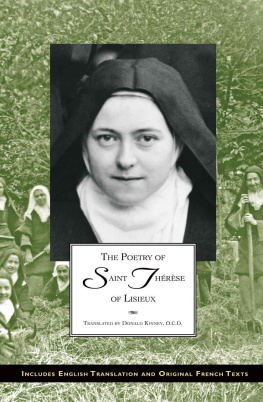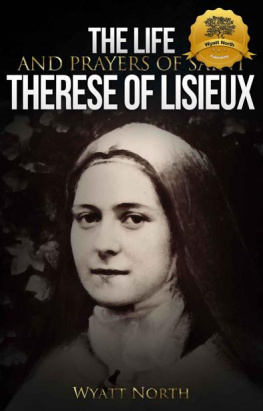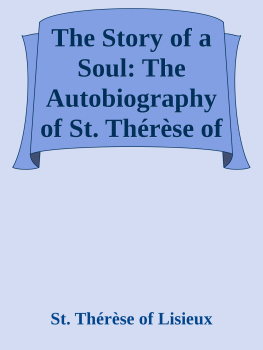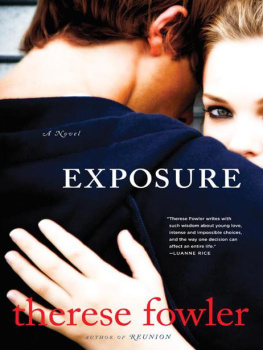Women in Igbo Life and Thought
A member of the Igbo people of Nigeria who became a nun and trained as an anthropologist, Sister Joseph Thrse Agbasiere had a unique opportunity to transcend some of the preconceptions and subjectivities inevitable when an outsider studies any society.
Her richly detailed ethnography examines kinship practices, marriage customs, and womens responsibilities in the house and the community, establishing the tremendous influence that Igbo women wield in public affairs. Igbo ideas about the universe, the person and spiritual considerations are also discussed and shown to be primarily centred around women.
This fascinating work is a testament to the combination of personal insight and academic detachment which the author brought to her study of Igbo women before her death in 1998. It will be a valuable resource for students and scholars in anthropology, African studies and womens studies.
Joseph Thrse Agbasiere was the daughter of a notable village family; her father was Igwe Gregory Nwadiukwu Agbasiere and her mother Lola Anna. A brilliant educational career through Catholic secondary schools culminated when she became the first West African Missionary Sister of the Holy Rosary on 31 August 1955. She moved on to higher education in Dublin and Bristol University; finally she studied for some years at Oxford University where, in 1985, she was awarded a doctorate in social anthropology for a thesis on Igbo women. In 1997, she returned to the Centre for Cross-Cultural Research on Women at Oxford University where, drawing upon her original thesis, she wrote the present book. The draft was completed when she returned to her motherhouse at Dublin, but before publication she fell ill and died.
First Published 2000 by Routledge
Published 2015 by Routledge
2 Park Square, Milton Park, Abingdon, Oxon OX14 4RN
Simultaneously published in the USA and Canada
by Routledge
711 Third Avenue, New York, NY 10017 USA
Routledge is an imprint of the Taylor & Francis Group, an informa business
2000 The Holy Rosary Order, Dublin
Typeset in Goudy by Steven Gardiner Ltd
All rights reserved. No part of this book may be reprinted or reproduced or utilised in any form or by any electronic, mechanical, or other means, now known or hereafter invented, including photocopying and recording, or in any information storage or retrieval system, without permission in writing from the publishers.
British Library Cataloguing in Publication Data
A catalogue record for this book is available from the British Library
Library of Congress Cataloging-in-Publication Data
Agbasiere, Joseph Thrse, 1929-1998
Women in Igbo life and thought / Joseph Thrse Agbasiere; edited with a
foreword by Shirley Ardener.
p. cm.
Includes bibliographical references and index.
ISBN 0-415-22703-8 - ISBN 0-415-22704-6
1. Women, Igbo. 2. Philosophy, Igbo. I. Title. II. Ardener, Shirley.
DT515.45.133 A35 2000
305.4889216332 21 - dc21
99-040300
ISBN 978-1-315-01115-8 (eISBN)
The final work on this book has been made possible by the award of a Research Fellowship at the Centre for Cross-Cultural Research on Women, University of Oxford, for Trinity Term 1997. The Fellowship was partly financed by the Rhodes Trust Fund, St Antonys College, Oxford, and partly by the World Mercy fund. To these bodies I owe a debt of gratitude. My earlier study at Oxford was financed mainly by Missio-Aachen, and by my religious order. To these and to individual patrons, including Wolfgang Staerk and Joseph McKenna, I express my sincere gratitude.
The major fieldwork undertaken in 1981-2 was made possible by many people. I owe them all my sincere thanks, but I must single out for special mention the late Roy Umenyi and family who provided me with free board for the 6-weeks pilot programme within Enugu, Udi and Nsukka. Mention should also be made of the federal and state officers, especially B. C. Morah and L. O. Ibeme, responsible for the conduct of the National Fertility Survey (September to December 1981) in the former Eastern Region, which comprises Anambra, Imo, Cross River and Rivers States. Through their kind auspices I had the opportunity to participate in the 3-week training course for field officers and state officers about to conduct the survey in their respective communities. I was also involved in the collection of data in a good number of places in Anambra and Imo States. This involvement was fortunate, as it afforded me a global view into, among other things, rural womens joys and sorrows.
My extended fieldwork within the Ibo community was made possible by the much-appreciated co-operation of the people. In particular John Okolie and his family housed me and were always ready to give information on various issues. Mention must also be made of the communitys traditional rulers, Ezeoha Asoegwu, Teres Nzekwe, Mgbeleke Mbanuzuru and Udunwa Nzelede. All these and many others in Ibi welcomed me into their homes and became my informants and close friends.
Among those outside Ibi who willingly gave me of their time and experience I wish to mention the late Eze-Dara Agbasiere (of Uli), the late P. N. Okeke (Alor), the late G. E. Okeke (Ihiala), Umerozo Anyakoha (Uli), Angie Brown (Onitsha) and Agatha Anasigwe (Ihiala).
The late Madam Ikonnia of Oloko-Umuahia and Ambrose Allagoia (retired Chief Justice, Port Harcourt) gave me new data on the historic Womens War of 1929, which I incorporated into my thesis, although this material is not included here because of space. While researching this episode, valuable field assistance was given me by Emenike Ikegbune, Patrice Mwaubani, Ezebuiro and Ngozi Nwandu. A group of young women in training to become nuns at the Holy Rosary Noviciate, Nsukka also helped me in 19812. To all these people and to those named and those not named in the book, I remain grateful.
While collecting material in remote parts of Igbo country I received help with transport and security from government officials in Enugu and Owerri, in particular from Reginald Chukwurah, Innocent Ejikeme, Vincent Muoneke and Innocent Nwoga.
At the University of Nsukka I had valuable help from the then librarian S. C. Noye and other library staff, and from scholars including the late D. I. Nwoga, A. N. Nwachukwu, E. C. Ifemesia, A. E. Afigbo, Felicia Ekejiuba, Kamene Okonjo, Ada Mere, Meki Nzewi, Patricia Nwoga and Julie Ogike.
Special mention should also be made of Ambrose Okeke, formerly Head of College of Education at Awka; G. M. K. Anoka, formerly State Co-ordinator of Arts and Culture, Enugu; Miriam Okagbue, formerly State Coordinator of TV Programmes, Enugu; Elizabeth Okaro, formerly Coordinator of Educational TV Programmes for Children, Enugu; Gabriel Agbasi, formerly of Anambra Broadcasting Service, Enugu. These and others have continued to show interest in my work.
Grateful acknowledgement is also due to the circle of expatriate Igbos with whom I associated closely during my missionary work in Kenya (198696). Special mention should be made to Paul O. Chuke, World Health Organisation representative in Kenya, who had earlier read the original manuscript and made very valuable suggestions; Frank and Victoria C. Nwonwu, Department of Forestry, Moi University, Eldoret; Larry and Edith Madubunyi who were on an exchange programme from the University of Nsukka; Dona and Cecilia Okpala of the United Nations in Kenya. The Nigerian Ambassador and his wife, Ezuma and Margaret Iwe and the Nigerian High Commissioner Clarkson Umelo and his wife Ngozi also encouraged me. Boniface Zabajungu, formerly of GABA Publications, Eldoret, Kenya also made very valuable editorial suggestions.



